- Date: March 31, 2025
Where: Northeastern University, Boston, MA
MERL Contact: Suhas Lohit
Research Areas: Artificial Intelligence, Computer Vision, Machine Learning
Brief - MERL researcher Suhas Lohit was an invited speaker at Boston Symmetry Day, held at Northeastern University. Boston Symmetry Day, an annual workshop organized by researchers at MIT and Northeastern, brought together attendees interested in symmetry-informed machine learning and its applications. Suhas' talk, titled “Efficiency for Equivariance, and Efficiency through Equivariance” discussed recent MERL works that show how to build general and efficient equivariant neural networks, and how equivariance can be utilized in self-supervised learning to yield improved 3D object detection. The abstract and slides can be found in the link below.
-
- Date: Sunday, April 6, 2025 - Friday, April 11, 2025
Location: Hyderabad, India
MERL Contacts: Wael H. Ali; Petros T. Boufounos; Radu Corcodel; François Germain; Chiori Hori; Siddarth Jain; Devesh K. Jha; Toshiaki Koike-Akino; Jonathan Le Roux; Yanting Ma; Hassan Mansour; Yoshiki Masuyama; Joshua Rapp; Diego Romeres; Anthony Vetro; Pu (Perry) Wang; Gordon Wichern
Research Areas: Artificial Intelligence, Communications, Computational Sensing, Electronic and Photonic Devices, Machine Learning, Robotics, Signal Processing, Speech & Audio
Brief - MERL has made numerous contributions to both the organization and technical program of ICASSP 2025, which is being held in Hyderabad, India from April 6-11, 2025.
Sponsorship
MERL is proud to be a Silver Patron of the conference and will participate in the student job fair on Thursday, April 10. Please join this session to learn more about employment opportunities at MERL, including openings for research scientists, post-docs, and interns.
MERL is pleased to be the sponsor of two IEEE Awards that will be presented at the conference. We congratulate Prof. Björn Erik Ottersten, the recipient of the 2025 IEEE Fourier Award for Signal Processing, and Prof. Shrikanth Narayanan, the recipient of the 2025 IEEE James L. Flanagan Speech and Audio Processing Award. Both awards will be presented in-person at ICASSP by Anthony Vetro, MERL President & CEO.
Technical Program
MERL is presenting 15 papers in the main conference on a wide range of topics including source separation, sound event detection, sound anomaly detection, speaker diarization, music generation, robot action generation from video, indoor airflow imaging, WiFi sensing, Doppler single-photon Lidar, optical coherence tomography, and radar imaging. Another paper on spatial audio will be presented at the Generative Data Augmentation for Real-World Signal Processing Applications (GenDA) Satellite Workshop.
MERL Researchers Petros Boufounos and Hassan Mansour will present a Tutorial on “Computational Methods in Radar Imaging” in the afternoon of Monday, April 7.
Petros Boufounos will also be giving an industry talk on Thursday April 10 at 12pm, on “A Physics-Informed Approach to Sensing".
About ICASSP
ICASSP is the flagship conference of the IEEE Signal Processing Society, and the world's largest and most comprehensive technical conference focused on the research advances and latest technological development in signal and information processing. The event has been attracting more than 4000 participants each year.
-
- Date & Time: Wednesday, March 26, 2025; 1:00 PM
Speaker: Andy Zou, CMU & Gray Swan AI
MERL Host: Ye Wang
Research Areas: Artificial Intelligence, Machine Learning, Information Security
Abstract 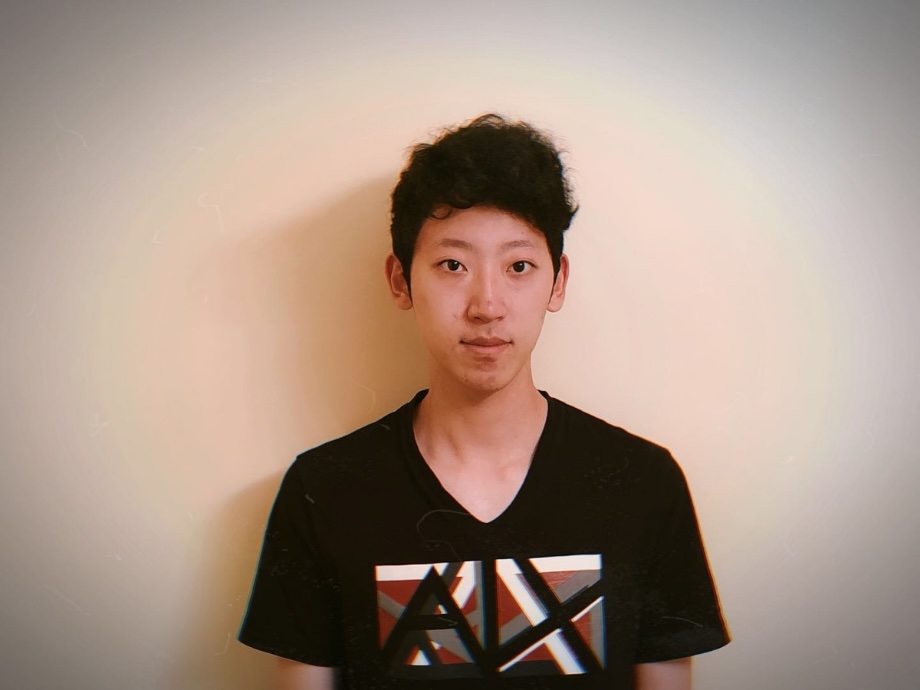 This presentation demonstrates how red teaming uncovers critical vulnerabilities in AI agents that challenge assumptions about safe deployment. The talk discusses the risks of integrating AI into real-world applications and recommends practical safeguards to enhance resilience and ensure dependable deployment in high-risk settings.
This presentation demonstrates how red teaming uncovers critical vulnerabilities in AI agents that challenge assumptions about safe deployment. The talk discusses the risks of integrating AI into real-world applications and recommends practical safeguards to enhance resilience and ensure dependable deployment in high-risk settings.
-
- Date & Time: Tuesday, March 11, 2025; 12:00 PM
Speaker: Dick den Hertog, University of Amsterdam
MERL Host: Arvind Raghunathan
Research Areas: Data Analytics, Optimization
Abstract  Increasing ocean plastic pollution is irreversibly harming ecosystems and human economic activities. We partner with a nonprofit organization and use optimization to help clean up oceans from plastic faster. Specifically, we optimize the route of their plastic collection system in the ocean to maximize the quantity of plastic collected over time. We formulate the problem as a longest path problem in a well-structured graph. However, because collection directly impacts future plastic density, the corresponding edge lengths are nonlinear polynomials. After analyzing the structural properties of the edge lengths, we propose a search-and-bound method, which leverages a relaxation of the problem solvable via dynamic programming and clustering, to efficiently find high-quality solutions (within 6% optimal in practice) and develop a tailored branch-and-bound strategy to solve it to provable optimality. On one year of ocean data, our optimization-based routing approach increases the quantity of plastic collected by more than 60% compared with the current routing strategy, hence speeding up the progress toward plastic-free oceans.
Increasing ocean plastic pollution is irreversibly harming ecosystems and human economic activities. We partner with a nonprofit organization and use optimization to help clean up oceans from plastic faster. Specifically, we optimize the route of their plastic collection system in the ocean to maximize the quantity of plastic collected over time. We formulate the problem as a longest path problem in a well-structured graph. However, because collection directly impacts future plastic density, the corresponding edge lengths are nonlinear polynomials. After analyzing the structural properties of the edge lengths, we propose a search-and-bound method, which leverages a relaxation of the problem solvable via dynamic programming and clustering, to efficiently find high-quality solutions (within 6% optimal in practice) and develop a tailored branch-and-bound strategy to solve it to provable optimality. On one year of ocean data, our optimization-based routing approach increases the quantity of plastic collected by more than 60% compared with the current routing strategy, hence speeding up the progress toward plastic-free oceans.
-
- Date & Time: Wednesday, March 5, 2025; 12:00 PM
Speaker: Qing Qu, University of Michigan
MERL Host: Pu (Perry) Wang
Research Areas: Artificial Intelligence, Computational Sensing, Machine Learning, Signal Processing
Abstract 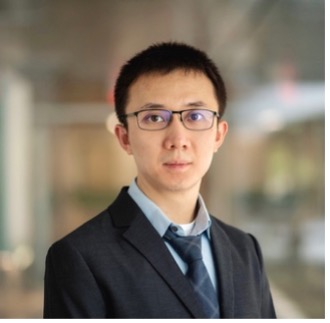 Recent empirical studies have shown that diffusion models possess a unique reproducibility property, transiting from memorization to generalization as the number of training samples increases. This demonstrates that diffusion models can effectively learn image distributions and generate new samples. Remarkably, these models achieve this even with a small number of training samples, despite the challenge of large image dimensions, effectively circumventing the curse of dimensionality. In this work, we provide theoretical insights into this phenomenon by leveraging two key empirical observations: (i) the low intrinsic dimensionality of image datasets and (ii) the low-rank property of the denoising autoencoder in trained diffusion models. With these setups, we rigorously demonstrate that optimizing the training loss of diffusion models is equivalent to solving the canonical subspace clustering problem across the training samples. This insight has practical implications for training and controlling diffusion models. Specifically, it enables us to precisely characterize the minimal number of samples necessary for accurately learning the low-rank data support, shedding light on the phase transition from memorization to generalization. Additionally, we empirically establish a correspondence between the subspaces and the semantic representations of image data, which enables one-step, transferrable, efficient image editing. Moreover, our results have profound practical implications for training efficiency and model safety, and they also open up numerous intriguing theoretical questions for future research.
Recent empirical studies have shown that diffusion models possess a unique reproducibility property, transiting from memorization to generalization as the number of training samples increases. This demonstrates that diffusion models can effectively learn image distributions and generate new samples. Remarkably, these models achieve this even with a small number of training samples, despite the challenge of large image dimensions, effectively circumventing the curse of dimensionality. In this work, we provide theoretical insights into this phenomenon by leveraging two key empirical observations: (i) the low intrinsic dimensionality of image datasets and (ii) the low-rank property of the denoising autoencoder in trained diffusion models. With these setups, we rigorously demonstrate that optimizing the training loss of diffusion models is equivalent to solving the canonical subspace clustering problem across the training samples. This insight has practical implications for training and controlling diffusion models. Specifically, it enables us to precisely characterize the minimal number of samples necessary for accurately learning the low-rank data support, shedding light on the phase transition from memorization to generalization. Additionally, we empirically establish a correspondence between the subspaces and the semantic representations of image data, which enables one-step, transferrable, efficient image editing. Moreover, our results have profound practical implications for training efficiency and model safety, and they also open up numerous intriguing theoretical questions for future research.
-
- Date & Time: Wednesday, February 26, 2025; 11:00 AM
Speaker: Petar Veličković, Google DeepMind
MERL Host: Anoop Cherian
Research Areas: Artificial Intelligence, Computer Vision, Machine Learning
Abstract 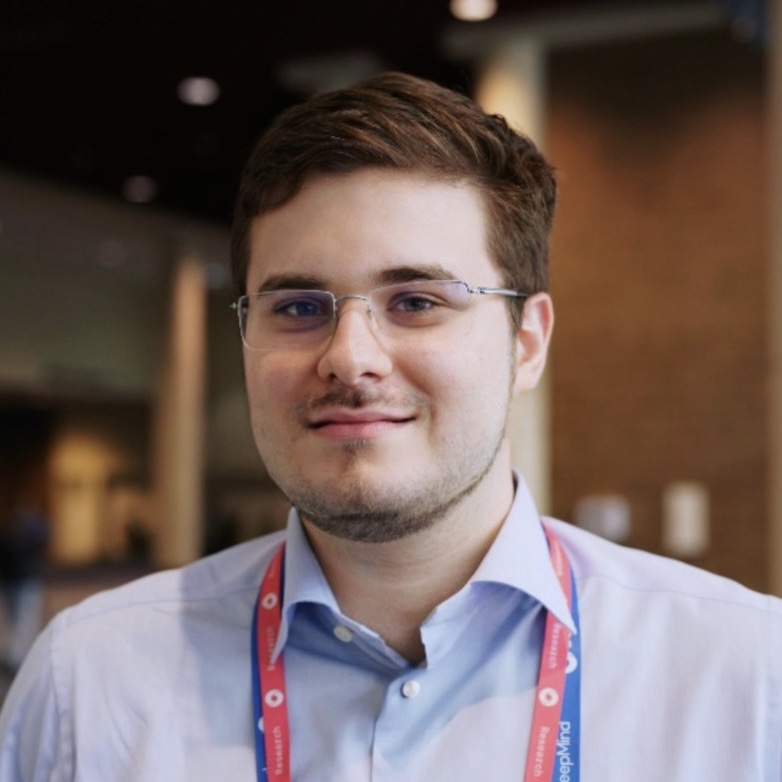 Recent years have seen a significant surge in complex AI systems for competitive programming, capable of performing at admirable levels against human competitors. While steady progress has been made, the highest percentiles still remain out of reach for these methods on standard competition platforms such as Codeforces. In this talk, I will describe and dive into our recent work, where we focussed on combinatorial competitive programming. In combinatorial challenges, the target is to find as-good-as-possible solutions to otherwise computationally intractable problems, over specific given inputs. We hypothesise that this scenario offers a unique testbed for human-AI synergy, as human programmers can write a backbone of a heuristic solution, after which AI can be used to optimise the scoring function used by the heuristic. We deploy our approach on previous iterations of Hash Code, a global team programming competition inspired by NP-hard software engineering problems at Google, and we leverage FunSearch to evolve our scoring functions. Our evolved solutions significantly improve the attained scores from their baseline, successfully breaking into the top percentile on all previous Hash Code online qualification rounds, and outperforming the top human teams on several. To the best of our knowledge, this is the first known AI-assisted top-tier result in competitive programming.
Recent years have seen a significant surge in complex AI systems for competitive programming, capable of performing at admirable levels against human competitors. While steady progress has been made, the highest percentiles still remain out of reach for these methods on standard competition platforms such as Codeforces. In this talk, I will describe and dive into our recent work, where we focussed on combinatorial competitive programming. In combinatorial challenges, the target is to find as-good-as-possible solutions to otherwise computationally intractable problems, over specific given inputs. We hypothesise that this scenario offers a unique testbed for human-AI synergy, as human programmers can write a backbone of a heuristic solution, after which AI can be used to optimise the scoring function used by the heuristic. We deploy our approach on previous iterations of Hash Code, a global team programming competition inspired by NP-hard software engineering problems at Google, and we leverage FunSearch to evolve our scoring functions. Our evolved solutions significantly improve the attained scores from their baseline, successfully breaking into the top percentile on all previous Hash Code online qualification rounds, and outperforming the top human teams on several. To the best of our knowledge, this is the first known AI-assisted top-tier result in competitive programming.
-
- Date & Time: Wednesday, January 29, 2025; 1:00 PM
Speaker: David Lindell, University of Toronto
MERL Host: Joshua Rapp
Research Areas: Computational Sensing, Computer Vision, Signal Processing
Abstract  The observed timescales of the universe span from the exasecond scale (~1e18 seconds) down to the zeptosecond scale (~1e-21 seconds). While specialized imaging systems can capture narrow slices of this temporal spectrum in the ultra-fast regime (e.g., nanoseconds to picoseconds; 1e-9 to 1e-12 s), they cannot simultaneously capture both slow (> 1 second) and ultra-fast events (< 1 nanosecond). Further, ultra-fast imaging systems are conventionally limited to single-viewpoint capture, hindering 3D visualization at ultra-fast timescales. In this talk, I discuss (1) new computational algorithms that turn a single-photon detector into an "ultra-wideband" imaging system that captures events from seconds to picoseconds; and (2) a method for neural rendering using multi-viewpoint, ultra-fast videos captured using single-photon detectors. The latter approach enables rendering videos of propagating light from novel viewpoints, observation of viewpoint-dependent changes in light transport predicted by Einstein, recovery of material properties, and accurate 3D reconstruction from multiply scattered light. Finally, I discuss future directions in ultra-wideband imaging.
The observed timescales of the universe span from the exasecond scale (~1e18 seconds) down to the zeptosecond scale (~1e-21 seconds). While specialized imaging systems can capture narrow slices of this temporal spectrum in the ultra-fast regime (e.g., nanoseconds to picoseconds; 1e-9 to 1e-12 s), they cannot simultaneously capture both slow (> 1 second) and ultra-fast events (< 1 nanosecond). Further, ultra-fast imaging systems are conventionally limited to single-viewpoint capture, hindering 3D visualization at ultra-fast timescales. In this talk, I discuss (1) new computational algorithms that turn a single-photon detector into an "ultra-wideband" imaging system that captures events from seconds to picoseconds; and (2) a method for neural rendering using multi-viewpoint, ultra-fast videos captured using single-photon detectors. The latter approach enables rendering videos of propagating light from novel viewpoints, observation of viewpoint-dependent changes in light transport predicted by Einstein, recovery of material properties, and accurate 3D reconstruction from multiply scattered light. Finally, I discuss future directions in ultra-wideband imaging.
-
- Date: December 16, 2024 - December 19, 2024
Where: Milan, Italy
MERL Contacts: Ankush Chakrabarty; Vedang M. Deshpande; Stefano Di Cairano; Abraham P. Vinod; Avishai Weiss; Gordon Wichern
Research Areas: Artificial Intelligence, Control, Dynamical Systems, Machine Learning, Multi-Physical Modeling, Optimization, Robotics
Brief - MERL researchers presented 7 papers at the recently concluded Conference on Decision and Control (CDC) 2024 in Milan, Italy. The papers covered a wide range of topics including safety shielding for stochastic model predictive control, reinforcement learning using expert observations, physics-constrained meta learning for positioning, variational-Bayes Kalman filtering, Bayesian measurement masks for GNSS positioning, divert-feasible lunar landing, and centering and stochastic control using constrained zonotopes.
As a sponsor of the conference, MERL maintained a booth for open discussions with researchers and students, and hosted a special session to discuss highlights of MERL research and work philosophy.
In addition, Ankush Chakrabarty (Principal Research Scientist, Multiphysical Systems Team) was an invited speaker in the pre-conference Workshop on "Learning Dynamics From Data" where he gave a talk on few-shot meta-learning for black-box identification using data from similar systems.
-
- Date: December 10, 2024 - December 15, 2024
Where: Advances in Neural Processing Systems (NeurIPS)
MERL Contacts: Petros T. Boufounos; Matthew Brand; Ankush Chakrabarty; Anoop Cherian; François Germain; Toshiaki Koike-Akino; Christopher R. Laughman; Jonathan Le Roux; Jing Liu; Suhas Lohit; Tim K. Marks; Yoshiki Masuyama; Kieran Parsons; Kuan-Chuan Peng; Diego Romeres; Pu (Perry) Wang; Ye Wang; Gordon Wichern
Research Areas: Artificial Intelligence, Communications, Computational Sensing, Computer Vision, Control, Data Analytics, Dynamical Systems, Machine Learning, Multi-Physical Modeling, Optimization, Robotics, Signal Processing, Speech & Audio, Human-Computer Interaction, Information Security
Brief - MERL researchers will attend and present the following papers at the 2024 Advances in Neural Processing Systems (NeurIPS) Conference and Workshops.
1. "RETR: Multi-View Radar Detection Transformer for Indoor Perception" by Ryoma Yataka (Mitsubishi Electric), Adriano Cardace (Bologna University), Perry Wang (Mitsubishi Electric Research Laboratories), Petros Boufounos (Mitsubishi Electric Research Laboratories), Ryuhei Takahashi (Mitsubishi Electric). Main Conference. https://neurips.cc/virtual/2024/poster/95530
2. "Evaluating Large Vision-and-Language Models on Children's Mathematical Olympiads" by Anoop Cherian (Mitsubishi Electric Research Laboratories), Kuan-Chuan Peng (Mitsubishi Electric Research Laboratories), Suhas Lohit (Mitsubishi Electric Research Laboratories), Joanna Matthiesen (Math Kangaroo USA), Kevin Smith (Massachusetts Institute of Technology), Josh Tenenbaum (Massachusetts Institute of Technology). Main Conference, Datasets and Benchmarks track. https://neurips.cc/virtual/2024/poster/97639
3. "Probabilistic Forecasting for Building Energy Systems: Are Time-Series Foundation Models The Answer?" by Young-Jin Park (Massachusetts Institute of Technology), Jing Liu (Mitsubishi Electric Research Laboratories), François G Germain (Mitsubishi Electric Research Laboratories), Ye Wang (Mitsubishi Electric Research Laboratories), Toshiaki Koike-Akino (Mitsubishi Electric Research Laboratories), Gordon Wichern (Mitsubishi Electric Research Laboratories), Navid Azizan (Massachusetts Institute of Technology), Christopher R. Laughman (Mitsubishi Electric Research Laboratories), Ankush Chakrabarty (Mitsubishi Electric Research Laboratories). Time Series in the Age of Large Models Workshop.
4. "Forget to Flourish: Leveraging Model-Unlearning on Pretrained Language Models for Privacy Leakage" by Md Rafi Ur Rashid (Penn State University), Jing Liu (Mitsubishi Electric Research Laboratories), Toshiaki Koike-Akino (Mitsubishi Electric Research Laboratories), Shagufta Mehnaz (Penn State University), Ye Wang (Mitsubishi Electric Research Laboratories). Workshop on Red Teaming GenAI: What Can We Learn from Adversaries?
5. "Spatially-Aware Losses for Enhanced Neural Acoustic Fields" by Christopher Ick (New York University), Gordon Wichern (Mitsubishi Electric Research Laboratories), Yoshiki Masuyama (Mitsubishi Electric Research Laboratories), François G Germain (Mitsubishi Electric Research Laboratories), Jonathan Le Roux (Mitsubishi Electric Research Laboratories). Audio Imagination Workshop.
6. "FV-NeRV: Neural Compression for Free Viewpoint Videos" by Sorachi Kato (Osaka University), Takuya Fujihashi (Osaka University), Toshiaki Koike-Akino (Mitsubishi Electric Research Laboratories), Takashi Watanabe (Osaka University). Machine Learning and Compression Workshop.
7. "GPT Sonography: Hand Gesture Decoding from Forearm Ultrasound Images via VLM" by Keshav Bimbraw (Worcester Polytechnic Institute), Ye Wang (Mitsubishi Electric Research Laboratories), Jing Liu (Mitsubishi Electric Research Laboratories), Toshiaki Koike-Akino (Mitsubishi Electric Research Laboratories). AIM-FM: Advancements In Medical Foundation Models: Explainability, Robustness, Security, and Beyond Workshop.
8. "Smoothed Embeddings for Robust Language Models" by Hase Ryo (Mitsubishi Electric), Md Rafi Ur Rashid (Penn State University), Ashley Lewis (Ohio State University), Jing Liu (Mitsubishi Electric Research Laboratories), Toshiaki Koike-Akino (Mitsubishi Electric Research Laboratories), Kieran Parsons (Mitsubishi Electric Research Laboratories), Ye Wang (Mitsubishi Electric Research Laboratories). Safe Generative AI Workshop.
9. "Slaying the HyDRA: Parameter-Efficient Hyper Networks with Low-Displacement Rank Adaptation" by Xiangyu Chen (University of Kansas), Ye Wang (Mitsubishi Electric Research Laboratories), Matthew Brand (Mitsubishi Electric Research Laboratories), Pu Wang (Mitsubishi Electric Research Laboratories), Jing Liu (Mitsubishi Electric Research Laboratories), Toshiaki Koike-Akino (Mitsubishi Electric Research Laboratories). Workshop on Adaptive Foundation Models.
10. "Preference-based Multi-Objective Bayesian Optimization with Gradients" by Joshua Hang Sai Ip (University of California Berkeley), Ankush Chakrabarty (Mitsubishi Electric Research Laboratories), Ali Mesbah (University of California Berkeley), Diego Romeres (Mitsubishi Electric Research Laboratories). Workshop on Bayesian Decision-Making and Uncertainty. Lightning talk spotlight.
11. "TR-BEACON: Shedding Light on Efficient Behavior Discovery in High-Dimensions with Trust-Region-based Bayesian Novelty Search" by Wei-Ting Tang (Ohio State University), Ankush Chakrabarty (Mitsubishi Electric Research Laboratories), Joel A. Paulson (Ohio State University). Workshop on Bayesian Decision-Making and Uncertainty.
12. "MEL-PETs Joint-Context Attack for the NeurIPS 2024 LLM Privacy Challenge Red Team Track" by Ye Wang (Mitsubishi Electric Research Laboratories), Tsunato Nakai (Mitsubishi Electric), Jing Liu (Mitsubishi Electric Research Laboratories), Toshiaki Koike-Akino (Mitsubishi Electric Research Laboratories), Kento Oonishi (Mitsubishi Electric), Takuya Higashi (Mitsubishi Electric). LLM Privacy Challenge. Special Award for Practical Attack.
13. "MEL-PETs Defense for the NeurIPS 2024 LLM Privacy Challenge Blue Team Track" by Jing Liu (Mitsubishi Electric Research Laboratories), Ye Wang (Mitsubishi Electric Research Laboratories), Toshiaki Koike-Akino (Mitsubishi Electric Research Laboratories), Tsunato Nakai (Mitsubishi Electric), Kento Oonishi (Mitsubishi Electric), Takuya Higashi (Mitsubishi Electric). LLM Privacy Challenge. Won 3rd Place Award.
MERL members also contributed to the organization of the Multimodal Algorithmic Reasoning (MAR) Workshop (https://marworkshop.github.io/neurips24/). Organizers: Anoop Cherian (Mitsubishi Electric Research Laboratories), Kuan-Chuan Peng (Mitsubishi Electric Research Laboratories), Suhas Lohit (Mitsubishi Electric Research Laboratories), Honglu Zhou (Salesforce Research), Kevin Smith (Massachusetts Institute of Technology), Tim K. Marks (Mitsubishi Electric Research Laboratories), Juan Carlos Niebles (Salesforce AI Research), Petar Veličković (Google DeepMind).
-
- Date & Time: Wednesday, November 20, 2024; 1:00 PM
Speaker: Di Shi, New Mexico State University
MERL Host: Hongbo Sun
Research Areas: Artificial Intelligence, Data Analytics, Optimization
Abstract  This presentation delves into the challenges and advancements in optimizing power system operations through Grid Mind, an innovative, data-driven framework designed to enhance the integration of renewable energy sources. Utilizing advanced learning algorithms, Grid Mind excels in strategic resource allocation and control, significantly improving efficiency and reliability in power systems with high renewable energy penetration. The transformative potential of this AI-assisted technology is highlighted through real-world applications, demonstrating its effectiveness in addressing the complexities of modern power systems. In addition, critical safety considerations and practical deployment challenges are explored, emphasizing the need for robust, secure, and adaptable solutions. This talk also discusses the capabilities of Grid Mind as a distributed, learning-based system optimized for edge devices, marking a significant advancement toward sustainable, safe, and efficient power system operations in an era dominated by renewable energy.
This presentation delves into the challenges and advancements in optimizing power system operations through Grid Mind, an innovative, data-driven framework designed to enhance the integration of renewable energy sources. Utilizing advanced learning algorithms, Grid Mind excels in strategic resource allocation and control, significantly improving efficiency and reliability in power systems with high renewable energy penetration. The transformative potential of this AI-assisted technology is highlighted through real-world applications, demonstrating its effectiveness in addressing the complexities of modern power systems. In addition, critical safety considerations and practical deployment challenges are explored, emphasizing the need for robust, secure, and adaptable solutions. This talk also discusses the capabilities of Grid Mind as a distributed, learning-based system optimized for edge devices, marking a significant advancement toward sustainable, safe, and efficient power system operations in an era dominated by renewable energy.
-
- Date & Time: Wednesday, October 30, 2024; 1:00 PM
Speaker: Samuel Clarke, Stanford University
MERL Host: Gordon Wichern
Research Areas: Artificial Intelligence, Machine Learning, Robotics, Speech & Audio
Abstract 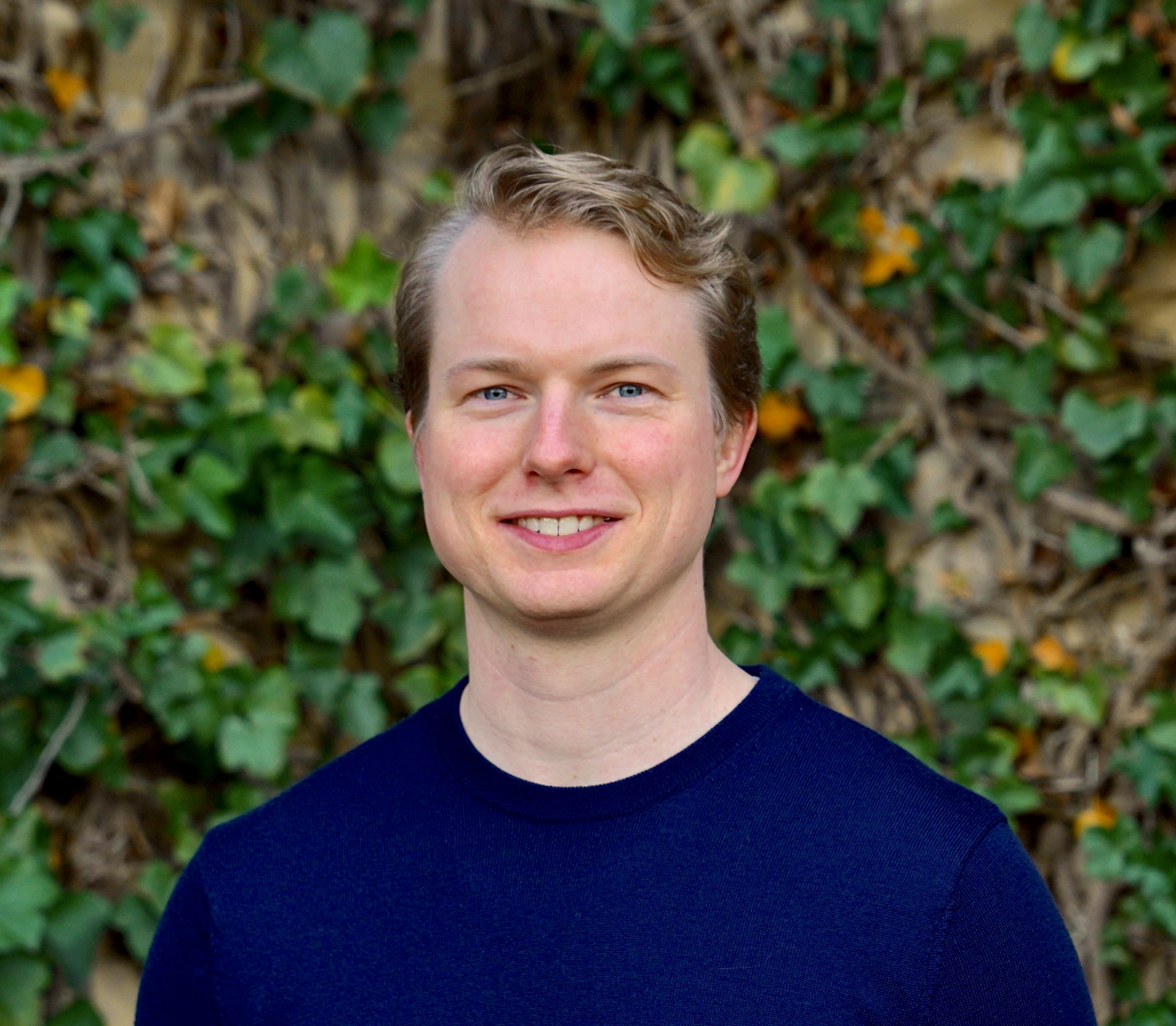 Acoustic perception is invaluable to humans and robots in understanding objects and events in their environments. These sounds are dependent on properties of the source, the environment, and the receiver. Many humans possess remarkable intuition both to infer key properties of each of these three aspects from a sound and to form expectations of how these different aspects would affect the sound they hear. In order to equip robots and AI agents with similar if not stronger capabilities, our research has taken a two-fold path. First, we collect high-fidelity datasets in both controlled and uncontrolled environments which capture real sounds of objects and rooms. Second, we introduce differentiable physics-based models that can estimate acoustic properties of objects and rooms from minimal amounts of real audio data, then can predict new sounds from these objects and rooms under novel, “unseen” conditions.
Acoustic perception is invaluable to humans and robots in understanding objects and events in their environments. These sounds are dependent on properties of the source, the environment, and the receiver. Many humans possess remarkable intuition both to infer key properties of each of these three aspects from a sound and to form expectations of how these different aspects would affect the sound they hear. In order to equip robots and AI agents with similar if not stronger capabilities, our research has taken a two-fold path. First, we collect high-fidelity datasets in both controlled and uncontrolled environments which capture real sounds of objects and rooms. Second, we introduce differentiable physics-based models that can estimate acoustic properties of objects and rooms from minimal amounts of real audio data, then can predict new sounds from these objects and rooms under novel, “unseen” conditions.
-
- Date & Time: Tuesday, November 19, 2024; 1:30-2:10pm
Location: Virtual Event
Speaker: Prof. Na Li, Harvard University Brief - MERL is excited to announce the featured keynote speaker for our Virtual Open House (VOH) 2024: Prof. Na Li from Harvard University.
Our VOH this year will take place on November 19th, 1:00pm - 4:30pm (EST). Prof. Li’s talk is scheduled for 1:30-2:10pm (EST). For details and agenda of the event, please visit: https://merl.com/events/voh24
Join us to learn more about who we are, what we do, and discuss our internship, post-doc, and full-time employment opportunities. To register, go to: https://mailchi.mp/merl/voh24
Title: Representation-based Learning and Control for Dynamical Systems
Abstract: The explosive growth of machine learning and data-driven methodologies have revolutionized numerous fields. Yet, the translation of these successes to the domain of dynamical physical systems remains a significant challenge. Closing the loop from data to actions in these systems faces many difficulties, stemming from the need for sample efficiency and computational feasibility, along with many other requirements such as verifiability, robustness, and safety. In this talk, we bridge this gap by introducing innovative representations to develop nonlinear stochastic control and reinforcement learning methods. Key in the representation is to represent the stochastic, nonlinear dynamics linearly onto a nonlinear feature space. We present a comprehensive framework to develop control and learning strategies which achieve efficiency, safety, robustness, and scalability with provable performance. We also show how the representation could be used to close the sim-to-real gap. Lastly, we will briefly present some concrete real-world applications, discussing how domain knowledge is applied in practice to further close the loop from data to actions.
-
- Date & Time: Wednesday, October 2, 2024; 1:00 PM
Speaker: Zhaojian Li, Mivchigan State University
MERL Host: Yebin Wang
Research Areas: Artificial Intelligence, Computer Vision, Control, Robotics
Abstract 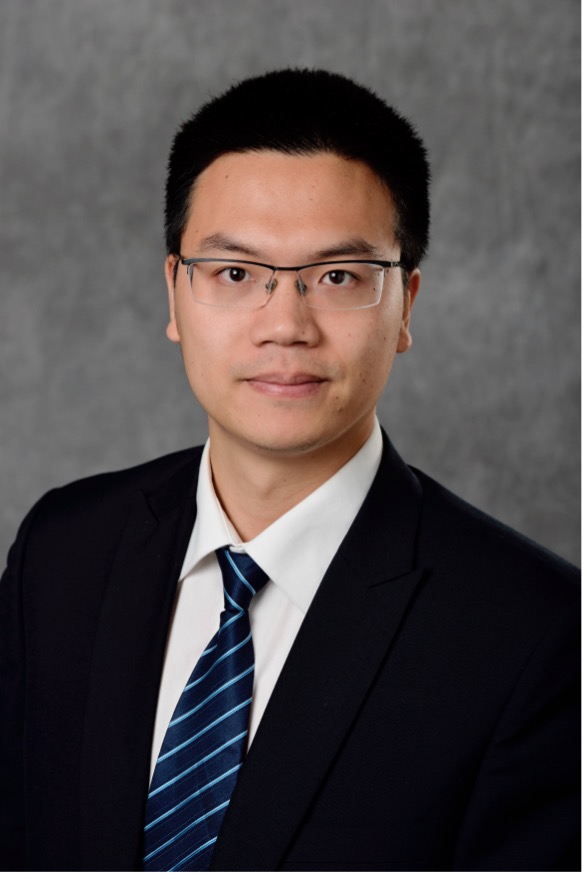 Harvesting labor is the single largest cost in apple production in the U.S. Surging cost and growing shortage of labor has forced the apple industry to seek automated harvesting solutions. Despite considerable progress in recent years, the existing robotic harvesting systems still fall short of performance expectations, lacking robustness and proving inefficient or overly complex for practical commercial deployment. In this talk, I will present the development and evaluation of a new dual-arm robotic apple harvesting system. This work is a result of a continuous collaboration between Michigan State University and U.S. Department of Agriculture.
Harvesting labor is the single largest cost in apple production in the U.S. Surging cost and growing shortage of labor has forced the apple industry to seek automated harvesting solutions. Despite considerable progress in recent years, the existing robotic harvesting systems still fall short of performance expectations, lacking robustness and proving inefficient or overly complex for practical commercial deployment. In this talk, I will present the development and evaluation of a new dual-arm robotic apple harvesting system. This work is a result of a continuous collaboration between Michigan State University and U.S. Department of Agriculture.
-
- Date & Time: Wednesday, September 18, 2024; 1:00 PM
Speaker: Tom Griffiths, Princeton University
Research Areas: Artificial Intelligence, Data Analytics, Machine Learning, Human-Computer Interaction
Abstract 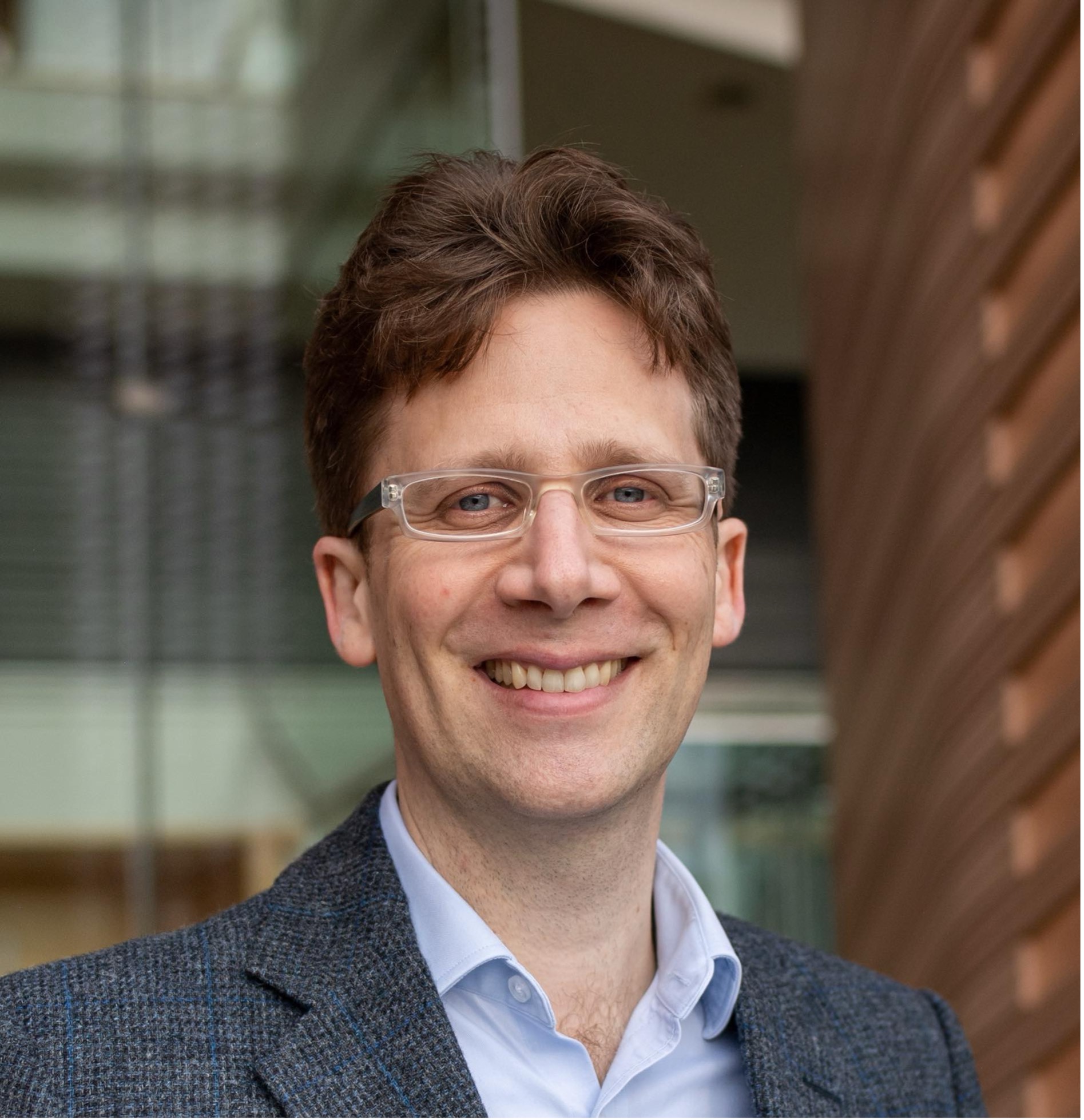 Large language models have been found to have surprising capabilities, even what have been called “sparks of artificial general intelligence.” However, understanding these models involves some significant challenges: their internal structure is extremely complicated, their training data is often opaque, and getting access to the underlying mechanisms is becoming increasingly difficult. As a consequence, researchers often have to resort to studying these systems based on their behavior. This situation is, of course, one that cognitive scientists are very familiar with — human brains are complicated systems trained on opaque data and typically difficult to study mechanistically. In this talk I will summarize some of the tools of cognitive science that are useful for understanding the behavior of large language models. Specifically, I will talk about how thinking about different levels of analysis (and Bayesian inference) can help us understand some behaviors that don’t seem particularly intelligent, how tasks like similarity judgment can be used to probe internal representations, how axiom violations can reveal interesting mechanisms, and how associations can reveal biases in systems that have been trained to be unbiased.
Large language models have been found to have surprising capabilities, even what have been called “sparks of artificial general intelligence.” However, understanding these models involves some significant challenges: their internal structure is extremely complicated, their training data is often opaque, and getting access to the underlying mechanisms is becoming increasingly difficult. As a consequence, researchers often have to resort to studying these systems based on their behavior. This situation is, of course, one that cognitive scientists are very familiar with — human brains are complicated systems trained on opaque data and typically difficult to study mechanistically. In this talk I will summarize some of the tools of cognitive science that are useful for understanding the behavior of large language models. Specifically, I will talk about how thinking about different levels of analysis (and Bayesian inference) can help us understand some behaviors that don’t seem particularly intelligent, how tasks like similarity judgment can be used to probe internal representations, how axiom violations can reveal interesting mechanisms, and how associations can reveal biases in systems that have been trained to be unbiased.
-
- Date: Friday, July 26, 2024
Location: MERL Offices
Speaker: Dr. Na Li, Harvard University
MERL Contact: Elizabeth Phillips Brief - On July 26th, MERL hosted its annual Women in Science luncheon. This event brings together MERL's female interns and employees to hear about the experiences and careers of women working in research and engineering fields. This year, we were honored to have Dr. Na Li as our guest speaker. Dr. Li, who joined MERL as a visiting faculty this summer, is a Winokur Family Professor of Electrical Engineering and Applied Mathematics at Harvard University. Dr. Li's talk highlighted her personal journey from rural China to Harvard Professor. Her insights and experiences provided invaluable inspiration to everyone in attendance. We appreciate both Dr. Li and all who participated in making this event a success. MERL remains committed to fostering an inclusive environment that supports the growth and development of women in STEM.
#WomenInScience #WomenInSTEM #MERL #Inspiration #Engineering #Research
-
- Date: May 13, 2024 - May 17, 2024
Where: Yokohama, Japan
MERL Contacts: Anoop Cherian; Radu Corcodel; Stefano Di Cairano; Chiori Hori; Siddarth Jain; Devesh K. Jha; Jonathan Le Roux; Diego Romeres; William S. Yerazunis
Research Areas: Artificial Intelligence, Machine Learning, Optimization, Robotics, Speech & Audio
Brief - MERL made significant contributions to both the organization and the technical program of the International Conference on Robotics and Automation (ICRA) 2024, which was held in Yokohama, Japan from May 13th to May 17th.
MERL was a Bronze sponsor of the conference, and exhibited a live robotic demonstration, which attracted a large audience. The demonstration showcased an Autonomous Robotic Assembly technology executed on MELCO's Assista robot arm and was the collaborative effort of the Optimization and Robotics Team together with the Advanced Technology department at Mitsubishi Electric.
MERL researchers from the Optimization and Robotics, Speech & Audio, and Control for Autonomy teams also presented 8 papers and 2 invited talks covering topics on robotic assembly, applications of LLMs to robotics, human robot interaction, safe and robust path planning for autonomous drones, transfer learning, perception and tactile sensing.
-
- Date & Time: Wednesday, May 29, 2024; 12:00 PM
Speaker: Chuchu Fan, MIT
MERL Host: Abraham P. Vinod
Research Areas: Artificial Intelligence, Control, Machine Learning
Abstract 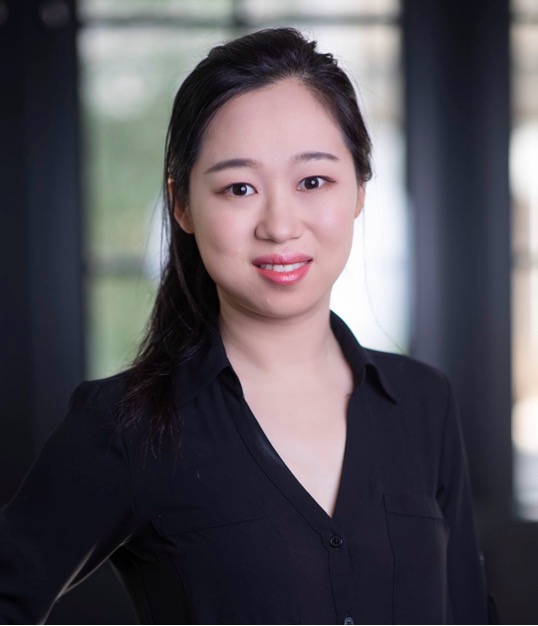 Learning-enabled control systems have demonstrated impressive empirical performance on challenging control problems in robotics. However, this performance often arrives with the trade-off of diminished transparency and the absence of guarantees regarding the safety and stability of the learned controllers. In recent years, new techniques have emerged to provide these guarantees by learning certificates alongside control policies — these certificates provide concise, data-driven proofs that guarantee the safety and stability of the learned control system. These methods not only allow the user to verify the safety of a learned controller but also provide supervision during training, allowing safety and stability requirements to influence the training process itself. In this talk, we present two exciting updates on neural certificates. In the first work, we explore the use of graph neural networks to learn collision-avoidance certificates that can generalize to unseen and very crowded environments. The second work presents a novel reinforcement learning approach that can produce certificate functions with the policies while addressing the instability issues in the optimization process. Finally, if time permits, I will also talk about my group's recent work using LLM and domain-specific task and motion planners to allow natural language as input for robot planning.
Learning-enabled control systems have demonstrated impressive empirical performance on challenging control problems in robotics. However, this performance often arrives with the trade-off of diminished transparency and the absence of guarantees regarding the safety and stability of the learned controllers. In recent years, new techniques have emerged to provide these guarantees by learning certificates alongside control policies — these certificates provide concise, data-driven proofs that guarantee the safety and stability of the learned control system. These methods not only allow the user to verify the safety of a learned controller but also provide supervision during training, allowing safety and stability requirements to influence the training process itself. In this talk, we present two exciting updates on neural certificates. In the first work, we explore the use of graph neural networks to learn collision-avoidance certificates that can generalize to unseen and very crowded environments. The second work presents a novel reinforcement learning approach that can produce certificate functions with the policies while addressing the instability issues in the optimization process. Finally, if time permits, I will also talk about my group's recent work using LLM and domain-specific task and motion planners to allow natural language as input for robot planning.
-
- Date: May 22, 2024
MERL Contact: Toshiaki Koike-Akino
Research Areas: Artificial Intelligence, Machine Learning
Brief - Toshiaki Koike-Akino is invited to present a seminar talk at EPFL, Switzerland. The talk, entitled "Post-Deep Learning: Emerging Quantum AI Technology", will discuss the recent trends, challenges, and applications of quantum machine learning (QML) technologies. The seminar is organized by Prof. Volkan Cevher and Prof. Giovanni De Micheli. The event invites students, researchers, scholars and professors through EPFL departments including School of Engineering, Communication Science, Life Science, Machine Learning and AI Center.
-
- Date: April 9, 2024
MERL Contact: Diego Romeres
Research Areas: Artificial Intelligence, Dynamical Systems, Machine Learning, Optimization, Robotics
Brief - Diego Romeres, Principal Research Scientist and Team Leader in the Optimization and Robotics Team, was invited to speak as a guest lecturer in the seminar series on "AI in Action" in the Department of Management and Engineering, at the University of Padua.
The talk, entitled "Machine Learning for Robotics and Automation" described MERL's recent research on machine learning and model-based reinforcement learning applied to robotics and automation.
-
- Date: April 12, 2024
MERL Contact: Saviz Mowlavi
Research Areas: Control, Dynamical Systems, Machine Learning, Optimization
Brief - Saviz Mowlavi was invited to present remotely at the Computational and Applied Mathematics seminar series in the Department of Mathematics at North Carolina State University.
The talk, entitled "Model-based and data-driven prediction and control of spatio-temporal systems", described the use of temporal smoothness to regularize the training of fast surrogate models for PDEs, user-friendly methods for PDE-constrained optimization, and efficient strategies for learning feedback controllers for PDEs.
-
- Date & Time: Wednesday, April 10, 2024; 12:00 PM
Speaker: Na Li, Harvard University
MERL Host: Yebin Wang
Research Areas: Control, Dynamical Systems, Machine Learning
Abstract 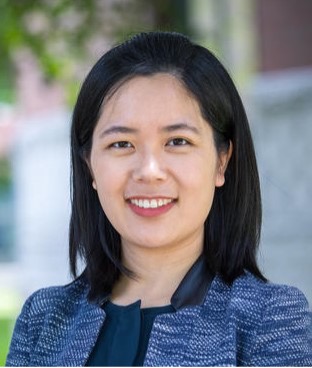 The explosive growth of machine learning and data-driven methodologies have revolutionized numerous fields. Yet, translating these successes to the domain of dynamical, physical systems remains a significant challenge, hindered by the complex and often unpredictable nature of such environments. Closing the loop from data to actions in these systems faces many difficulties, stemming from the need for sample efficiency and computational feasibility amidst intricate dynamics, along with many other requirements such as verifiability, robustness, and safety. In this talk, we bridge this gap by introducing innovative approaches that harness representation-based methods, domain knowledge, and the physical structures of systems. We present a comprehensive framework that integrates these components to develop reinforcement learning and control strategies that are not only tailored for the complexities of physical systems but also achieve efficiency, safety, and robustness with provable performance.
The explosive growth of machine learning and data-driven methodologies have revolutionized numerous fields. Yet, translating these successes to the domain of dynamical, physical systems remains a significant challenge, hindered by the complex and often unpredictable nature of such environments. Closing the loop from data to actions in these systems faces many difficulties, stemming from the need for sample efficiency and computational feasibility amidst intricate dynamics, along with many other requirements such as verifiability, robustness, and safety. In this talk, we bridge this gap by introducing innovative approaches that harness representation-based methods, domain knowledge, and the physical structures of systems. We present a comprehensive framework that integrates these components to develop reinforcement learning and control strategies that are not only tailored for the complexities of physical systems but also achieve efficiency, safety, and robustness with provable performance.
-
- Date & Time: Wednesday, April 3, 2024; 12:00 PM
Speaker: Fadel Adib, MIT & Cartesian
MERL Host: Wael H. Ali
Research Areas: Computational Sensing, Dynamical Systems, Signal Processing
Abstract 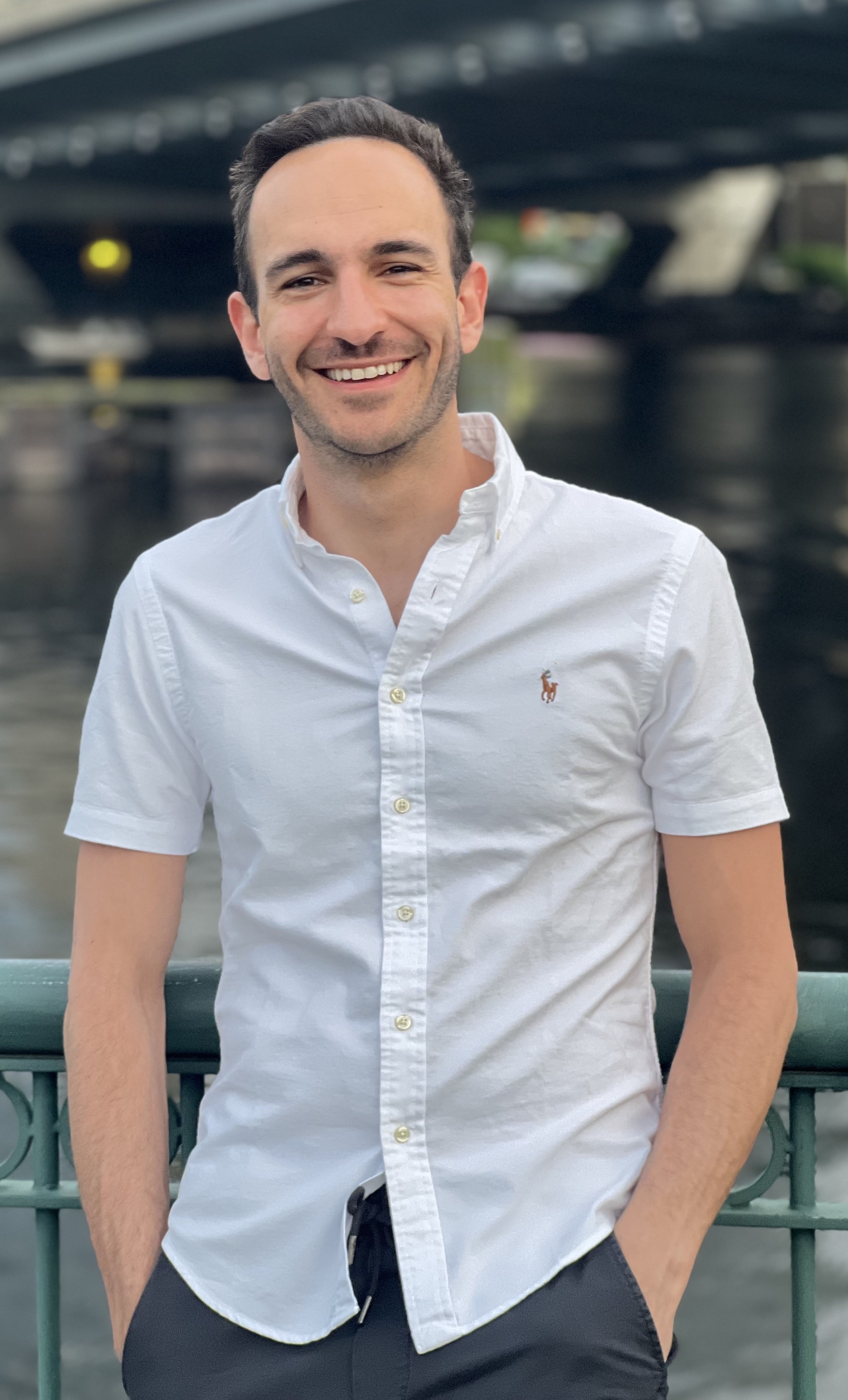 This talk will cover a new generation of technologies that can sense, connect, and perceive the physical world in unprecedented ways. These technologies can uncover hidden worlds around us, promising transformative impact on areas spanning climate change monitoring, ocean mapping, healthcare, food security, supply chain, and even extraterrestrial exploration.
This talk will cover a new generation of technologies that can sense, connect, and perceive the physical world in unprecedented ways. These technologies can uncover hidden worlds around us, promising transformative impact on areas spanning climate change monitoring, ocean mapping, healthcare, food security, supply chain, and even extraterrestrial exploration.
The talk will cover four core technologies invented by Prof. Adib and his team. The first is an ocean internet-of-things (IoT) that uses battery-free sensors for climate change monitoring, marine life discovery, and seafood production (aquaculture). The second is a new perception technology that enables robots to sense and manipulate hidden objects. The third is a new augmented reality headset with ``X-ray vision”, which extends human perception beyond line-of-sight. The fourth is a wireless sensing technology that can “see through walls” and monitor people’s vital signs (including their breathing, heart rate, and emotions), enabling smart environments that sense humans requiring any contact with the human body.
The talk will touch on the journey of these technologies from their inception at MIT to international collaborations and startups that are translating them to real-world impact in areas spanning healthcare, climate change, and supply chain.
-
- Date: December 9, 2024 - December 15, 2024
Where: NeurIPS 2024
MERL Contact: Devesh K. Jha
Research Areas: Artificial Intelligence, Machine Learning
Brief - Devesh Jha, a Principal Research Scientist in the Optimization & Intelligent Robtics team, has been appointed as an area chair for Conference on Neural Information Processing Systems (NeurIPS) 2024. NeurIPS is the premier Machine Learning (ML) and Artificial Intelligence (AI) conference that includes invited talks, demonstrations, symposia, and oral and poster presentations of refereed papers.
-
- Date: March 20, 2024
Where: Austin, TX
MERL Contact: Ankush Chakrabarty
Research Areas: Artificial Intelligence, Control, Data Analytics, Dynamical Systems, Machine Learning, Multi-Physical Modeling, Optimization
Brief - Ankush Chakrabarty, Principal Research Scientist in the Multiphysical Systems Team, was invited to speak as a guest lecturer in the seminar series on "Occupant-Centric Grid Interactive Buildings" in the Department of Civil, Architectural and Environmental Engineering (CAEE) at the University of Texas at Austin.
The talk, entitled "Deep Generative Networks and Fine-Tuning for Net-Zero Energy Buildings" described lessons learned from MERL's recent research on generative models for building simulation and control, along with meta-learning for on-the-fly fine-tuning to adapt and optimize energy expenditure.
-
- Date & Time: Wednesday, March 20, 2024; 1:00 PM
Speaker: Sanmi Koyejo, Stanford University
MERL Host: Jing Liu
Research Areas: Artificial Intelligence, Machine Learning
Abstract  Recent work claims that large language models display emergent abilities, abilities not present in smaller-scale models that are present in larger-scale models. What makes emergent abilities intriguing is two-fold: their sharpness, transitioning seemingly instantaneously from not present to present, and their unpredictability, appearing at seemingly unforeseeable model scales. Here, we present an alternative explanation for emergent abilities: that for a particular task and model family, when analyzing fixed model outputs, emergent abilities appear due to the researcher's choice of metric rather than due to fundamental changes in model behavior with scale. Specifically, nonlinear or discontinuous metrics produce apparent emergent abilities, whereas linear or continuous metrics produce smooth, continuous predictable changes in model performance. We present our alternative explanation in a simple mathematical model. Via the presented analyses, we provide evidence that alleged emergent abilities evaporate with different metrics or with better statistics, and may not be a fundamental property of scaling AI models.
Recent work claims that large language models display emergent abilities, abilities not present in smaller-scale models that are present in larger-scale models. What makes emergent abilities intriguing is two-fold: their sharpness, transitioning seemingly instantaneously from not present to present, and their unpredictability, appearing at seemingly unforeseeable model scales. Here, we present an alternative explanation for emergent abilities: that for a particular task and model family, when analyzing fixed model outputs, emergent abilities appear due to the researcher's choice of metric rather than due to fundamental changes in model behavior with scale. Specifically, nonlinear or discontinuous metrics produce apparent emergent abilities, whereas linear or continuous metrics produce smooth, continuous predictable changes in model performance. We present our alternative explanation in a simple mathematical model. Via the presented analyses, we provide evidence that alleged emergent abilities evaporate with different metrics or with better statistics, and may not be a fundamental property of scaling AI models.
-
 This presentation demonstrates how red teaming uncovers critical vulnerabilities in AI agents that challenge assumptions about safe deployment. The talk discusses the risks of integrating AI into real-world applications and recommends practical safeguards to enhance resilience and ensure dependable deployment in high-risk settings.
This presentation demonstrates how red teaming uncovers critical vulnerabilities in AI agents that challenge assumptions about safe deployment. The talk discusses the risks of integrating AI into real-world applications and recommends practical safeguards to enhance resilience and ensure dependable deployment in high-risk settings. Increasing ocean plastic pollution is irreversibly harming ecosystems and human economic activities. We partner with a nonprofit organization and use optimization to help clean up oceans from plastic faster. Specifically, we optimize the route of their plastic collection system in the ocean to maximize the quantity of plastic collected over time. We formulate the problem as a longest path problem in a well-structured graph. However, because collection directly impacts future plastic density, the corresponding edge lengths are nonlinear polynomials. After analyzing the structural properties of the edge lengths, we propose a search-and-bound method, which leverages a relaxation of the problem solvable via dynamic programming and clustering, to efficiently find high-quality solutions (within 6% optimal in practice) and develop a tailored branch-and-bound strategy to solve it to provable optimality. On one year of ocean data, our optimization-based routing approach increases the quantity of plastic collected by more than 60% compared with the current routing strategy, hence speeding up the progress toward plastic-free oceans.
Increasing ocean plastic pollution is irreversibly harming ecosystems and human economic activities. We partner with a nonprofit organization and use optimization to help clean up oceans from plastic faster. Specifically, we optimize the route of their plastic collection system in the ocean to maximize the quantity of plastic collected over time. We formulate the problem as a longest path problem in a well-structured graph. However, because collection directly impacts future plastic density, the corresponding edge lengths are nonlinear polynomials. After analyzing the structural properties of the edge lengths, we propose a search-and-bound method, which leverages a relaxation of the problem solvable via dynamic programming and clustering, to efficiently find high-quality solutions (within 6% optimal in practice) and develop a tailored branch-and-bound strategy to solve it to provable optimality. On one year of ocean data, our optimization-based routing approach increases the quantity of plastic collected by more than 60% compared with the current routing strategy, hence speeding up the progress toward plastic-free oceans. Recent empirical studies have shown that diffusion models possess a unique reproducibility property, transiting from memorization to generalization as the number of training samples increases. This demonstrates that diffusion models can effectively learn image distributions and generate new samples. Remarkably, these models achieve this even with a small number of training samples, despite the challenge of large image dimensions, effectively circumventing the curse of dimensionality. In this work, we provide theoretical insights into this phenomenon by leveraging two key empirical observations: (i) the low intrinsic dimensionality of image datasets and (ii) the low-rank property of the denoising autoencoder in trained diffusion models. With these setups, we rigorously demonstrate that optimizing the training loss of diffusion models is equivalent to solving the canonical subspace clustering problem across the training samples. This insight has practical implications for training and controlling diffusion models. Specifically, it enables us to precisely characterize the minimal number of samples necessary for accurately learning the low-rank data support, shedding light on the phase transition from memorization to generalization. Additionally, we empirically establish a correspondence between the subspaces and the semantic representations of image data, which enables one-step, transferrable, efficient image editing. Moreover, our results have profound practical implications for training efficiency and model safety, and they also open up numerous intriguing theoretical questions for future research.
Recent empirical studies have shown that diffusion models possess a unique reproducibility property, transiting from memorization to generalization as the number of training samples increases. This demonstrates that diffusion models can effectively learn image distributions and generate new samples. Remarkably, these models achieve this even with a small number of training samples, despite the challenge of large image dimensions, effectively circumventing the curse of dimensionality. In this work, we provide theoretical insights into this phenomenon by leveraging two key empirical observations: (i) the low intrinsic dimensionality of image datasets and (ii) the low-rank property of the denoising autoencoder in trained diffusion models. With these setups, we rigorously demonstrate that optimizing the training loss of diffusion models is equivalent to solving the canonical subspace clustering problem across the training samples. This insight has practical implications for training and controlling diffusion models. Specifically, it enables us to precisely characterize the minimal number of samples necessary for accurately learning the low-rank data support, shedding light on the phase transition from memorization to generalization. Additionally, we empirically establish a correspondence between the subspaces and the semantic representations of image data, which enables one-step, transferrable, efficient image editing. Moreover, our results have profound practical implications for training efficiency and model safety, and they also open up numerous intriguing theoretical questions for future research. Recent years have seen a significant surge in complex AI systems for competitive programming, capable of performing at admirable levels against human competitors. While steady progress has been made, the highest percentiles still remain out of reach for these methods on standard competition platforms such as Codeforces. In this talk, I will describe and dive into our recent work, where we focussed on combinatorial competitive programming. In combinatorial challenges, the target is to find as-good-as-possible solutions to otherwise computationally intractable problems, over specific given inputs. We hypothesise that this scenario offers a unique testbed for human-AI synergy, as human programmers can write a backbone of a heuristic solution, after which AI can be used to optimise the scoring function used by the heuristic. We deploy our approach on previous iterations of Hash Code, a global team programming competition inspired by NP-hard software engineering problems at Google, and we leverage FunSearch to evolve our scoring functions. Our evolved solutions significantly improve the attained scores from their baseline, successfully breaking into the top percentile on all previous Hash Code online qualification rounds, and outperforming the top human teams on several. To the best of our knowledge, this is the first known AI-assisted top-tier result in competitive programming.
Recent years have seen a significant surge in complex AI systems for competitive programming, capable of performing at admirable levels against human competitors. While steady progress has been made, the highest percentiles still remain out of reach for these methods on standard competition platforms such as Codeforces. In this talk, I will describe and dive into our recent work, where we focussed on combinatorial competitive programming. In combinatorial challenges, the target is to find as-good-as-possible solutions to otherwise computationally intractable problems, over specific given inputs. We hypothesise that this scenario offers a unique testbed for human-AI synergy, as human programmers can write a backbone of a heuristic solution, after which AI can be used to optimise the scoring function used by the heuristic. We deploy our approach on previous iterations of Hash Code, a global team programming competition inspired by NP-hard software engineering problems at Google, and we leverage FunSearch to evolve our scoring functions. Our evolved solutions significantly improve the attained scores from their baseline, successfully breaking into the top percentile on all previous Hash Code online qualification rounds, and outperforming the top human teams on several. To the best of our knowledge, this is the first known AI-assisted top-tier result in competitive programming. The observed timescales of the universe span from the exasecond scale (~1e18 seconds) down to the zeptosecond scale (~1e-21 seconds). While specialized imaging systems can capture narrow slices of this temporal spectrum in the ultra-fast regime (e.g., nanoseconds to picoseconds; 1e-9 to 1e-12 s), they cannot simultaneously capture both slow (> 1 second) and ultra-fast events (< 1 nanosecond). Further, ultra-fast imaging systems are conventionally limited to single-viewpoint capture, hindering 3D visualization at ultra-fast timescales. In this talk, I discuss (1) new computational algorithms that turn a single-photon detector into an "ultra-wideband" imaging system that captures events from seconds to picoseconds; and (2) a method for neural rendering using multi-viewpoint, ultra-fast videos captured using single-photon detectors. The latter approach enables rendering videos of propagating light from novel viewpoints, observation of viewpoint-dependent changes in light transport predicted by Einstein, recovery of material properties, and accurate 3D reconstruction from multiply scattered light. Finally, I discuss future directions in ultra-wideband imaging.
The observed timescales of the universe span from the exasecond scale (~1e18 seconds) down to the zeptosecond scale (~1e-21 seconds). While specialized imaging systems can capture narrow slices of this temporal spectrum in the ultra-fast regime (e.g., nanoseconds to picoseconds; 1e-9 to 1e-12 s), they cannot simultaneously capture both slow (> 1 second) and ultra-fast events (< 1 nanosecond). Further, ultra-fast imaging systems are conventionally limited to single-viewpoint capture, hindering 3D visualization at ultra-fast timescales. In this talk, I discuss (1) new computational algorithms that turn a single-photon detector into an "ultra-wideband" imaging system that captures events from seconds to picoseconds; and (2) a method for neural rendering using multi-viewpoint, ultra-fast videos captured using single-photon detectors. The latter approach enables rendering videos of propagating light from novel viewpoints, observation of viewpoint-dependent changes in light transport predicted by Einstein, recovery of material properties, and accurate 3D reconstruction from multiply scattered light. Finally, I discuss future directions in ultra-wideband imaging. This presentation delves into the challenges and advancements in optimizing power system operations through Grid Mind, an innovative, data-driven framework designed to enhance the integration of renewable energy sources. Utilizing advanced learning algorithms, Grid Mind excels in strategic resource allocation and control, significantly improving efficiency and reliability in power systems with high renewable energy penetration. The transformative potential of this AI-assisted technology is highlighted through real-world applications, demonstrating its effectiveness in addressing the complexities of modern power systems. In addition, critical safety considerations and practical deployment challenges are explored, emphasizing the need for robust, secure, and adaptable solutions. This talk also discusses the capabilities of Grid Mind as a distributed, learning-based system optimized for edge devices, marking a significant advancement toward sustainable, safe, and efficient power system operations in an era dominated by renewable energy.
This presentation delves into the challenges and advancements in optimizing power system operations through Grid Mind, an innovative, data-driven framework designed to enhance the integration of renewable energy sources. Utilizing advanced learning algorithms, Grid Mind excels in strategic resource allocation and control, significantly improving efficiency and reliability in power systems with high renewable energy penetration. The transformative potential of this AI-assisted technology is highlighted through real-world applications, demonstrating its effectiveness in addressing the complexities of modern power systems. In addition, critical safety considerations and practical deployment challenges are explored, emphasizing the need for robust, secure, and adaptable solutions. This talk also discusses the capabilities of Grid Mind as a distributed, learning-based system optimized for edge devices, marking a significant advancement toward sustainable, safe, and efficient power system operations in an era dominated by renewable energy. Acoustic perception is invaluable to humans and robots in understanding objects and events in their environments. These sounds are dependent on properties of the source, the environment, and the receiver. Many humans possess remarkable intuition both to infer key properties of each of these three aspects from a sound and to form expectations of how these different aspects would affect the sound they hear. In order to equip robots and AI agents with similar if not stronger capabilities, our research has taken a two-fold path. First, we collect high-fidelity datasets in both controlled and uncontrolled environments which capture real sounds of objects and rooms. Second, we introduce differentiable physics-based models that can estimate acoustic properties of objects and rooms from minimal amounts of real audio data, then can predict new sounds from these objects and rooms under novel, “unseen” conditions.
Acoustic perception is invaluable to humans and robots in understanding objects and events in their environments. These sounds are dependent on properties of the source, the environment, and the receiver. Many humans possess remarkable intuition both to infer key properties of each of these three aspects from a sound and to form expectations of how these different aspects would affect the sound they hear. In order to equip robots and AI agents with similar if not stronger capabilities, our research has taken a two-fold path. First, we collect high-fidelity datasets in both controlled and uncontrolled environments which capture real sounds of objects and rooms. Second, we introduce differentiable physics-based models that can estimate acoustic properties of objects and rooms from minimal amounts of real audio data, then can predict new sounds from these objects and rooms under novel, “unseen” conditions. Harvesting labor is the single largest cost in apple production in the U.S. Surging cost and growing shortage of labor has forced the apple industry to seek automated harvesting solutions. Despite considerable progress in recent years, the existing robotic harvesting systems still fall short of performance expectations, lacking robustness and proving inefficient or overly complex for practical commercial deployment. In this talk, I will present the development and evaluation of a new dual-arm robotic apple harvesting system. This work is a result of a continuous collaboration between Michigan State University and U.S. Department of Agriculture.
Harvesting labor is the single largest cost in apple production in the U.S. Surging cost and growing shortage of labor has forced the apple industry to seek automated harvesting solutions. Despite considerable progress in recent years, the existing robotic harvesting systems still fall short of performance expectations, lacking robustness and proving inefficient or overly complex for practical commercial deployment. In this talk, I will present the development and evaluation of a new dual-arm robotic apple harvesting system. This work is a result of a continuous collaboration between Michigan State University and U.S. Department of Agriculture. Large language models have been found to have surprising capabilities, even what have been called “sparks of artificial general intelligence.” However, understanding these models involves some significant challenges: their internal structure is extremely complicated, their training data is often opaque, and getting access to the underlying mechanisms is becoming increasingly difficult. As a consequence, researchers often have to resort to studying these systems based on their behavior. This situation is, of course, one that cognitive scientists are very familiar with — human brains are complicated systems trained on opaque data and typically difficult to study mechanistically. In this talk I will summarize some of the tools of cognitive science that are useful for understanding the behavior of large language models. Specifically, I will talk about how thinking about different levels of analysis (and Bayesian inference) can help us understand some behaviors that don’t seem particularly intelligent, how tasks like similarity judgment can be used to probe internal representations, how axiom violations can reveal interesting mechanisms, and how associations can reveal biases in systems that have been trained to be unbiased.
Large language models have been found to have surprising capabilities, even what have been called “sparks of artificial general intelligence.” However, understanding these models involves some significant challenges: their internal structure is extremely complicated, their training data is often opaque, and getting access to the underlying mechanisms is becoming increasingly difficult. As a consequence, researchers often have to resort to studying these systems based on their behavior. This situation is, of course, one that cognitive scientists are very familiar with — human brains are complicated systems trained on opaque data and typically difficult to study mechanistically. In this talk I will summarize some of the tools of cognitive science that are useful for understanding the behavior of large language models. Specifically, I will talk about how thinking about different levels of analysis (and Bayesian inference) can help us understand some behaviors that don’t seem particularly intelligent, how tasks like similarity judgment can be used to probe internal representations, how axiom violations can reveal interesting mechanisms, and how associations can reveal biases in systems that have been trained to be unbiased. Learning-enabled control systems have demonstrated impressive empirical performance on challenging control problems in robotics. However, this performance often arrives with the trade-off of diminished transparency and the absence of guarantees regarding the safety and stability of the learned controllers. In recent years, new techniques have emerged to provide these guarantees by learning certificates alongside control policies — these certificates provide concise, data-driven proofs that guarantee the safety and stability of the learned control system. These methods not only allow the user to verify the safety of a learned controller but also provide supervision during training, allowing safety and stability requirements to influence the training process itself. In this talk, we present two exciting updates on neural certificates. In the first work, we explore the use of graph neural networks to learn collision-avoidance certificates that can generalize to unseen and very crowded environments. The second work presents a novel reinforcement learning approach that can produce certificate functions with the policies while addressing the instability issues in the optimization process. Finally, if time permits, I will also talk about my group's recent work using LLM and domain-specific task and motion planners to allow natural language as input for robot planning.
Learning-enabled control systems have demonstrated impressive empirical performance on challenging control problems in robotics. However, this performance often arrives with the trade-off of diminished transparency and the absence of guarantees regarding the safety and stability of the learned controllers. In recent years, new techniques have emerged to provide these guarantees by learning certificates alongside control policies — these certificates provide concise, data-driven proofs that guarantee the safety and stability of the learned control system. These methods not only allow the user to verify the safety of a learned controller but also provide supervision during training, allowing safety and stability requirements to influence the training process itself. In this talk, we present two exciting updates on neural certificates. In the first work, we explore the use of graph neural networks to learn collision-avoidance certificates that can generalize to unseen and very crowded environments. The second work presents a novel reinforcement learning approach that can produce certificate functions with the policies while addressing the instability issues in the optimization process. Finally, if time permits, I will also talk about my group's recent work using LLM and domain-specific task and motion planners to allow natural language as input for robot planning. The explosive growth of machine learning and data-driven methodologies have revolutionized numerous fields. Yet, translating these successes to the domain of dynamical, physical systems remains a significant challenge, hindered by the complex and often unpredictable nature of such environments. Closing the loop from data to actions in these systems faces many difficulties, stemming from the need for sample efficiency and computational feasibility amidst intricate dynamics, along with many other requirements such as verifiability, robustness, and safety. In this talk, we bridge this gap by introducing innovative approaches that harness representation-based methods, domain knowledge, and the physical structures of systems. We present a comprehensive framework that integrates these components to develop reinforcement learning and control strategies that are not only tailored for the complexities of physical systems but also achieve efficiency, safety, and robustness with provable performance.
The explosive growth of machine learning and data-driven methodologies have revolutionized numerous fields. Yet, translating these successes to the domain of dynamical, physical systems remains a significant challenge, hindered by the complex and often unpredictable nature of such environments. Closing the loop from data to actions in these systems faces many difficulties, stemming from the need for sample efficiency and computational feasibility amidst intricate dynamics, along with many other requirements such as verifiability, robustness, and safety. In this talk, we bridge this gap by introducing innovative approaches that harness representation-based methods, domain knowledge, and the physical structures of systems. We present a comprehensive framework that integrates these components to develop reinforcement learning and control strategies that are not only tailored for the complexities of physical systems but also achieve efficiency, safety, and robustness with provable performance. This talk will cover a new generation of technologies that can sense, connect, and perceive the physical world in unprecedented ways. These technologies can uncover hidden worlds around us, promising transformative impact on areas spanning climate change monitoring, ocean mapping, healthcare, food security, supply chain, and even extraterrestrial exploration.
This talk will cover a new generation of technologies that can sense, connect, and perceive the physical world in unprecedented ways. These technologies can uncover hidden worlds around us, promising transformative impact on areas spanning climate change monitoring, ocean mapping, healthcare, food security, supply chain, and even extraterrestrial exploration.  Recent work claims that large language models display emergent abilities, abilities not present in smaller-scale models that are present in larger-scale models. What makes emergent abilities intriguing is two-fold: their sharpness, transitioning seemingly instantaneously from not present to present, and their unpredictability, appearing at seemingly unforeseeable model scales. Here, we present an alternative explanation for emergent abilities: that for a particular task and model family, when analyzing fixed model outputs, emergent abilities appear due to the researcher's choice of metric rather than due to fundamental changes in model behavior with scale. Specifically, nonlinear or discontinuous metrics produce apparent emergent abilities, whereas linear or continuous metrics produce smooth, continuous predictable changes in model performance. We present our alternative explanation in a simple mathematical model. Via the presented analyses, we provide evidence that alleged emergent abilities evaporate with different metrics or with better statistics, and may not be a fundamental property of scaling AI models.
Recent work claims that large language models display emergent abilities, abilities not present in smaller-scale models that are present in larger-scale models. What makes emergent abilities intriguing is two-fold: their sharpness, transitioning seemingly instantaneously from not present to present, and their unpredictability, appearing at seemingly unforeseeable model scales. Here, we present an alternative explanation for emergent abilities: that for a particular task and model family, when analyzing fixed model outputs, emergent abilities appear due to the researcher's choice of metric rather than due to fundamental changes in model behavior with scale. Specifically, nonlinear or discontinuous metrics produce apparent emergent abilities, whereas linear or continuous metrics produce smooth, continuous predictable changes in model performance. We present our alternative explanation in a simple mathematical model. Via the presented analyses, we provide evidence that alleged emergent abilities evaporate with different metrics or with better statistics, and may not be a fundamental property of scaling AI models.